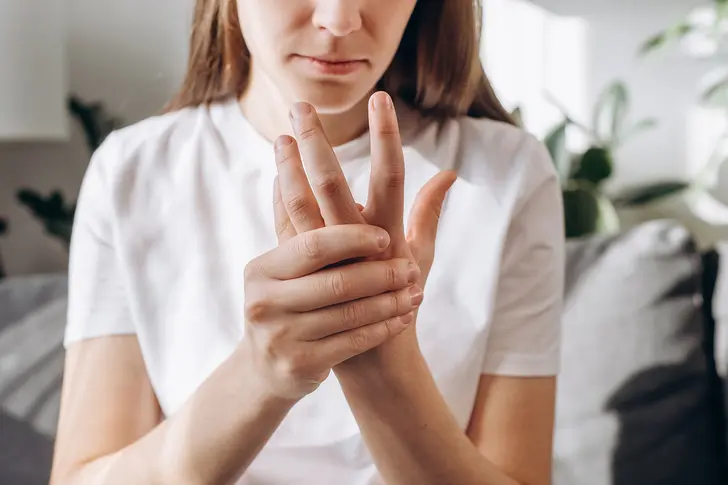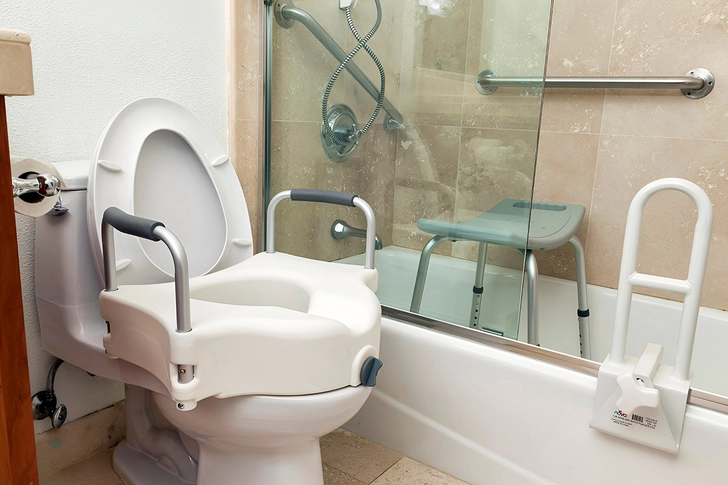- Overview
- Types
- Symptoms
- Causes & Risks
- Tests & Diagnosis
- Treatment
- Living With
- Mobility & Assistive Devices
- Complications
- Caregiving & Support
- Appointment Prep
- View Full Guide
Every Home Remedy for MS Symptoms You Probably Haven't Tried (and Which Ones Might Actually Work)



Home Remedies vs. Prescriptions
If you’ve been diagnosed with multiple sclerosis (MS), there are simple things you can try to help with some of the milder, everyday discomforts of the disorder. Home remedies may ease some of your symptoms, but they should never replace prescribed treatments like medications, which can help slow the progression of MS and lower your chances of having a relapse. Here are some remedies to try — and some you'll want to skip. Check with your doctor before adding anything new to your routine, and make sure to get medical help if your symptoms get worse or you notice new ones.

Cleanses and Detox
Juicing or gentle cleanses might offer some short-term help with MS symptoms — especially if you’re dealing with low energy or are having trouble swallowing food. Some early research also suggests that intermittent fasting — that is, alternating between regular eating and periods of little to no food — may improve gut health, lower inflammation, and ease some symptoms. But so far, there’s no solid evidence that juice cleanses or detox diets have any lasting benefits for people with MS. A more reliable approach is to enjoy juice in moderation and choose small, frequent meals as part of a balanced, nutritious diet.

Megadoses of Vitamins
Research suggests there may be a connection between some vitamins and MS, with vitamin D being the most studied. Most people get it from sunlight, though you can also find smaller amounts in foods like fish, eggs, and milk. Studies show that people with lower levels of vitamin D have a higher chance of getting MS, but it’s still unclear whether taking supplements can help prevent the disease or improve symptoms. Vitamin B12 may also play a role, since your body needs it to form the protective coating around the nerve fibers that MS damages. But research hasn’t shown any benefit to taking B12 if you get enough of it through your diet. If you’re worried about your vitamin levels, check in with your doctor to see whether supplements might help. Taking them in high doses without proper monitoring may do more harm than good.

Supplements
You can usually get the vitamins and nutrients your body needs from the foods you eat. If you have MS, certain supplements may help with symptoms like inflammation, fatigue, and immune function. Some of the most common ones to take are omega 3-fish oil, lipoic acid, magnesium, and antioxidant vitamins, like vitamins A, C, and E. There’s no strong evidence, however, that these supplements truly benefit people with MS. In some cases, they can interact with medications or cause problems if overused. Still, many people who take supplements for MS find it gives them more control over their disease management, and when taken in recommended doses, they’re generally safe.

Essential Oils
You can use essential oils in a few ways: apply them to your skin, add them to bath water, or simply smell them. Some small studies suggest that, as a complementary therapy, essential oils may help with memory, anxiety, depression, pain, and insomnia in people with MS. Lavender oil in particular is popular for improving sleep. While there isn’t enough research to confirm how well they work, essential oils are generally safe. If applying them to your skin, it’s a good idea to do a patch test first to check for irritation or allergies.

Restrictive Diets
There isn’t enough evidence to say for sure whether any type of special diet can improve MS symptoms, but if eating a certain way helps you feel better, it could be a positive approach. Diets like Paleo, Mediterranean, or Swank — which limits saturated and unsaturated fats — have recommendations that can support overall health, like eating more fruits and vegetables. That said, diets that are too restrictive can be unhealthy and much harder to stick to. Instead, try to focus on a balanced diet with protein, carbs, healthy fats, and fiber.

Natural Foods and Drinks
Adding more natural, healthy food and drinks to your diet is never a bad thing. When it comes to MS, eating a balanced diet can make you feel less fatigued, keep your bathroom trips regular, and improve your muscle strength. If you get tired quickly, try eating more starchy carbs, like potatoes or whole wheat breads, along with iron-rich foods like meat and fish. For bowel problems like constipation, eat more fiber, including fruits and vegetables, or try drinking prune juice.

Fatigue Management
Fatigue is one of the most common symptoms of MS, but there are plenty of things you can do to manage it at home. A good first step is keeping a fatigue diary to track your energy levels at different times of the day and with different activities, then plan and prioritize tasks around those patterns. The foods you eat can also make a difference: Instead of reaching for sugary drinks or coffee, choose starchy carbs that give you a slow release of energy as they get digested. Regular exercise can also give you more energy by boosting your strength and mood and improving your sleep. Just remember to balance activities with proper rest.

Relief From Overheating
Heat can make some of the symptoms of MS worse, whether it’s from humid weather, exercise, or even a hot shower. If you need a quick and easy way to cool down, try sucking on ice cubes, taking a cold shower, using a fan, or spraying your clothes with water. Special cooling gear, like vests or neck wraps with ice packs, can also help. In the summer months especially, wear light, loose clothing or choose fabrics with “wicking” properties, which pull moisture away from your skin to help keep you cool.

Combating Muscle Weakness and Spasms
Stretching and strengthening exercises are some of the best things you can do at home to ease muscle weakness and spasms. The best ones depend on your symptoms: Yoga and other movements that focus on range of motion can keep your muscles and joints from getting stiff, while strengthening moves, like lifting light weights, can help prevent weakness. If you don’t have weights at home, you can use things around the house, like a water bottle filled with sand. Even everyday movements, like reaching up to high shelves in your kitchen or bending down to touch your toes, count as simple stretches that keep your muscles working well.

Promoting Balance
Making a few changes around your home can make it safer and easier to navigate. Simple DIY projects could include installing a grab handle to make it easier for you to stand up, keeping a stool in the kitchen so you can sit while cooking or washing dishes, getting a shower chair or raised toilet seat for your bathroom, or removing loose rugs or cords you might trip on. You can also practice balance exercises — like single leg raises or moving from sitting to standing — to improve your stability and confidence.

Maintaining Emotional/Mental Health and Memory
If you feel anxious about your MS, try setting a five-minute “worry appointment” with yourself each day. This gives you space to acknowledge those feelings, then set them aside for the rest of the day. Mindfulness practices like meditation or yoga can also help you feel more in control of your mood. If your anxiety becomes unmanageable or you start to feel depressed, talk to your doctor about your options for getting more support. For memory help, try making to-do lists, set alarms or reminders on your phone, or leave yourself hand-written or voice notes. Sticking to a daily routine can also make things feel more manageable.
IMAGES PROVIDED BY:
- iStock/Getty Images
- Moment/Getty Images
- Moment/Getty Images
- Moment/Getty Images
- Moment/Getty Images
- Moment/Getty Images
- Westend61/Getty Images
- E+/Getty Images
- E+/Getty Images
- E+/Getty Images
- WebMD Ignite
- E+/Getty Images
SOURCES:
Cleveland Clinic: “Multiple Sclerosis (MS).”
Frontiers in Nutrition: “The effects of intermittent fasting for patients with multiple sclerosis (MS): a systematic review.”
Mayo Clinic: “Multiple sclerosis,” “Vitamins for MS: Do supplements make a difference?”
Medicines: “Dietary Supplements on Controlling Multiple Sclerosis Symptoms and Relapses: Current Clinical Evidence and Future Perspectives.”
MS Society: “Anxiety, stress and MS,” “Aromatherapy,” “Diet and Nutrition,” “Healthy Eating,” “Home adaptations and equipment,” “Hot and cold: the effects of temperature on MS," “Managing fatigue,” “Mindfulness and MS,” “New research sheds light on the vitamin D puzzle,” “Pain and unpleasant sensations in MS,” “Simple exercises for MS,” “Special diets and MS,” “Tips for dealing with memory and thinking problems,” “Vitamin D and MS,” “Yoga for MS.”
Multiple Sclerosis Trust: “Balance Exercises.”
National Multiple Sclerosis Society: “Heat Sensitivity With Multiple Sclerosis,” “Vitamins, Minerals and Supplements.”
Nigerian Journal of Clinical Practice: “The Effect of Aromatherapy with Lavender Essential Oil on the Sleep and Fatigue Level of Patients with Multiple Sclerosis in Turkey: A Randomized Controlled Trial.”
NHS: “Vitamins and Minerals.”
U.S. Department of Veterans Affairs: “Staying Upright: Avoiding Falls.”